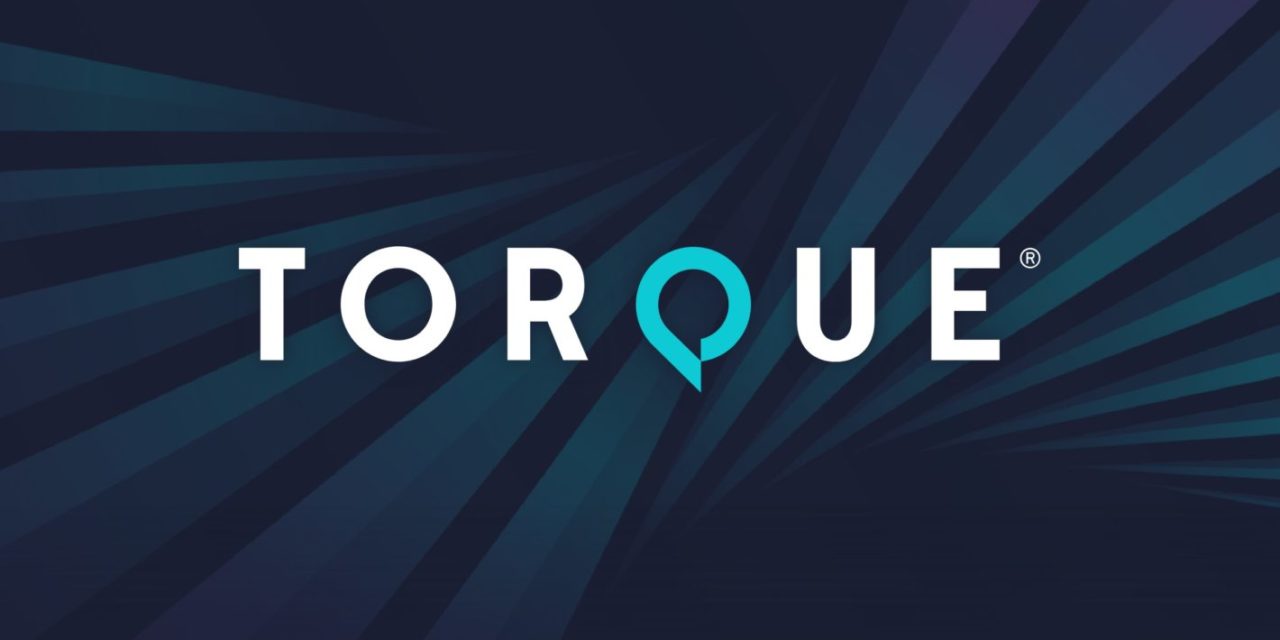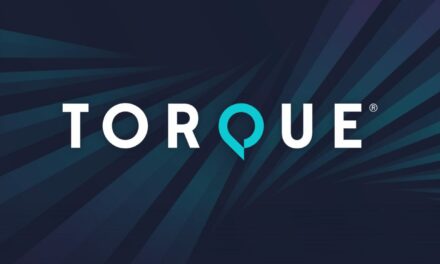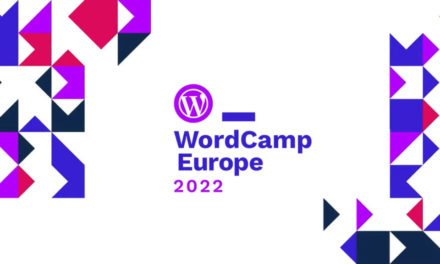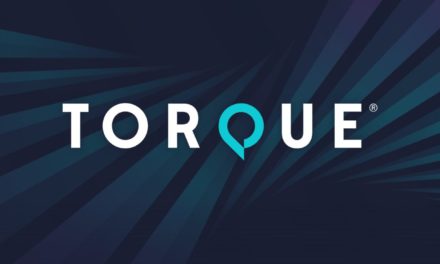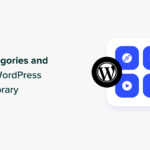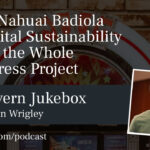Welcome to Press This, the WordPress community podcast from WMR. Here host David Vogelpohl sits down with guests from around the community to talk about the biggest issues facing WordPress developers. The following is a transcription of the original recording. You can find out more about WP Engine’s acquisition here.
Powered by RedCircle
David Vogelpohl: Hello everyone and welcome to Press This, the WordPress community podcast on WMR. This is your host, David Vogelpohl. I support the WordPress community through my role at WP Engine, and I love to bring the best of the community to you here every week on Press This. As a reminder, you can follow me on Twitter @wpdavidv, and you can subscribe to Press This on Red Circle, iTunes, Spotify, or download the latest episodes at wmr.fm. In this episode, we are super excited to bring you an exclusive interview featuring the acquisition of the very popular Advanced Custom Fields or ACF and other top plugins by WP Engine. And joining us for this very special episode are the founders of both WP Engine and Delicious Brains. I’d like to first start by welcoming to Press This, the founder of Delicious Brains, Brad Touesnard. Brad, welcome.
Brad Touesnard: Hey thanks for having me, David.
DV: So awesome to have you here, such exciting news I’m sure for you and your team, this is incredible. I really appreciate you joining us to talk about it here today. And then of course from the other side of the transaction, I’d like to welcome the founder of WP Engine, Mr. Jason Cohen, Jason, welcome.
Jason Cohen: Hey thanks, this is gonna be great.
DV: Is this the first time I’ve ever had you on Press This, Jason?
JC: You know, it may be.
DV: Alright, alright, we’ll have to correct that, we’ll have to get you back. What about you Brad, I know we’ve hung out at like a million WordCamps, but have I ever had you on the show?
BT: No, I’m sorry and ashamed to say I didn’t know about your show. [laughing]
DV: Oh, okay okay, we’ll have to do a better job promoting it. I like that.
JC: I’m even more ashamed because I did know about it. [laughing]
DV: Well, this is also on me because I knew both of you and didn’t invite you either apparently so we’ll have to have to correct that in the future. But for those listening for a little bit more context, just this week, WP Engine and Delicious Brains announced that WP Engine has acquired ACF Advanced Custom Fields, WP Migrate, you may even know it as its former name WP Migrate DB Pro, as well as WP Offload Media, and WP Offload SES. And what we wanted to do is bring these two gentlemen here today to talk about the transaction, to talk a little bit about the synergies, to talk about the future of their products and their companies, and to give us an overall kind of context on everything that went down, and what that might mean for the future. So really looking forward to this conversation, thanks again, both for being able to make time to be able to do this. So, Brad, I’m going to start with you, I ask this question of every guest of Press This, which you would know if you listen, and that is to briefly tell me your WordPress origin story. When was the first time you used WordPress?
BT: You gotta go back a-ways. [laughing] Gather around kids, I’ll tell you a story. So back in 2004, I was looking for a CMS for my website and I found WordPress and set it up, and my first blog post on my site is just remarking on how great WordPress is, actually. So that was the start of it, kind of tinkered with themes and eventually, plugins, published my first plugin in 2007, and just, you know, just on my own site, I don’t even think I knew about wordpress.org at the time.
DV: What kind of site, was it, by the way?
BT: Just a blog, really, just yeah this is, I mean, again this is before Facebook and Twitter, this is how you published to the world right, like when you wanted to tell them what you were, you know, what you had for breakfast. [laughing] So that was basically what it was. I’ve since pruned that site because it had a lot of embarrassing stuff on it so I’ve removed that. But yeah, and then and then kind of just you know, it went from there. I ended up working at an agency in Vancouver in 2008 and ended up building sites in WordPress professionally, and on some pretty big projects for pretty big clients. And then I gave my first talk at a WordCamp that same year, which was WordCamp Vancouver, which was like a subset of Bar Camp Vancouver like WordCamp wasn’t even its own thing yet. And then from there, just you know, WordPress core contributions, worked as a contractor, and then started this product business and the rest is kind of history, yeah.
DV: That’s amazing, I’ve heard so many similar stories over the years, asking these questions and that’s amazing to hear. 2004, so this would have been just a year after WordPress was created so, you definitely go way back. That’s awesome and I think your contributions to WordPress definitely speak for themselves, Alright Jason, same question for you, briefly tell me your WordPress origin story.
JC: He said the word “briefly” to make sure I didn’t go on for 18 minutes.
DV:: I say that to every guest.
JC: Oh yeah. [laughing]
DV: Brad was pretty good, he was pretty succinct. He covered a lot of time, but he got right to it.
JC: So does this count as my time? [laughing] So I started blogging in 2006, as exactly as Brad said, it was the cool stuff before social media and even mobile phones and so forth, and that was exciting. And then in, let’s say around 2010 or so, it had finally gotten popular, I don’t know, at the time RSS subscribers was often how you measured whether you had you know, whether you were popular, so I don’t know, I had like.50,000 RSS subscribers or something, and I would get on the front page of Hacker News most weeks when I would post because I wrote about startups and marketing and stuff like that, which was, which was good fodder for Hacker News, and then the site would crash. And I was running my own server with WordPress and it wasn’t badly set up, but you know, we all know, it’s not easy to set up when you get 15-20 hits per second, which is about, at that time, what you would get when you got on the front page of Hacker News. So I talked to other bloggers and said, hey, how do you keep WordPress up when you get a bunch of traffic, and they were like, yeah I don’t know, but if you find something tell me because I need that. And so I turned into sort of proper product discovery, spoke to 40 or 50 people, that took three or four months, and it turned out that if we, that you could charge10 times as much as people were paying shared hosting services like GoDaddy, you could charge 50 bucks a month, instead of five bucks a month, if you made WordPress fast and scalable and secure and if tech support was really good and answered questions about WordPress, and not just answering questions about the server, like the server’s up the internet’s up so we’re done. Actually support WordPress. So that’s the origin of WP Engine 12 years ago.: And yeah and now we have almost 200,000 customers who also feel that way.
DV: Excellent, excellent, well that’s great to hear you know I’ve heard your WordPress and WP Engine origin story a few times over the years. I learned some new tidbits along the way. i’d not really heard that full color on your experience with Hacker News and getting that popularity and needing to think about it through the lens of a solution in that level of detail, that’s awesome. Brad, earlier, as I was kind of describing the episode and kind of why we were all chatting here today, I kind of ran through the plugins but I’m just curious if you could run through them again and make sure I understand like what plugins did Delicious Brains sell to WP Engine?
BT: Yeah, everything must go, all plugins must go. [laughing] So, all of them is the answer, so that’s ACF,, obviously you mentioned that, that’s the big one, and then we’ve got WP Migrate, formerly WP Migrate DB Pro. You can tell, why I changed, you know we changed the name of it because it’s not podcast friendly right, it’s just it’s way too much to say.
DV: It’s got a nice rhythm to it, though, you know it’s got kind of a pattern.
BT: Yeah, but the real reason we changed it is because the DB, I did like a little Twitter poll asking people like, do you realize that WP Migrate DB Pro does more than just migrate the database, and a bunch of people said they didn’t. They didn’t realize it because of the name, so it was like oh man, we got to do something about that. And then the other plugins are WP Offload Media, WP Offload SES, and Better Search Replace.
DV: Well see I did make a mistake, I didn’t add Better Search Replace in my original intro. I’m glad I had you run through that list.
BT: Yes, yes, Better Search Replace is kind of the little plugin that could. It’s something that we haven’t really promoted a lot, but it is has sat on wordpress.org and just gained more and more traction and it’s very popular. It’s, it has over a million active installs on dot org, so, it’s kind of I think it’s the second most popular plugin after ACF in our catalog. So, there you go.
DV: That’s fantastic, yeah I’m familiar with it, used it before, know people that like it, that’s fantastic that’s awesome. I’ll make sure to update the show notes before we publish the episode, so people won’t read the wrong information there in the show description, that was awesome. Alright, so I want to kind of now, maybe kind of transition into more into the reasons behind the deal and how you’re both thinking about the strategy and the pathway in the future, but we’re going to take our first break and we’ll be right back.
DV: Hello everyone welcome back to Press This, the WordPress community podcast on WMR, this is your host David Vogelpohl, I’m in the middle of interviewing Brad Touesnard of Delicious Brains and WP, I’m sorry and Jason Cohen of WP Engine about the recent acquisition of ACF and other popular plugins by WP Engine. Brad and Jason, right before the break you were both of course telling me your WordPress origin stories, and Brad you were kind of detailing the plugins that were involved in the transaction. So now, I’m going to kind of shift it over to Jason for a minute and Jason, what about Delicious Brains’ portfolio of plugins looked especially delicious as you thought about what would be helpful for supporting WP Engine’s mission? Like, what about the plugins was a draw or you thought was a synergy to what WP Engine is trying to do.
JC: Sure, well, I mean so, of course, there are different plugins that do different jobs, and so I think the answer varies by plugin a bit. But, I would say overall, they’re all very high quality and popular plugins, and you say you know that popular doesn’t necessarily prove that they’re high quality, but they are in fact also that. And when we see a lot of our own customers who use it, and of course lots of people around the WordPress community who use it, it’s hard to, it’s hard to argue that they’re not very valuable, very useful to a lot of people. In general, one of the main missions at WP Engine is to make life great for developers of WordPress sites. And that can mean many things, it can mean technical architecture, it could mean tools like Local. But it also means plugins that developers love, and that’s what a lot of these are. And so some of them are plugins that you use sometimes like migrate. Obviously use that when you migrate stuff. Although some people use it for things like making staging areas or other things that are part of a normal or recurring developer process. Some people use it just once or twice, and you know now and then to move stuff around, but the point is that it’s a developer tool. And then, the same thing with Better Search Replace, right, sometimes you need it most days you don’t need it, but sometimes you do, so it’s a great tool. ACF obviously one of the most popular plugins in all of WordPress, so probably needs no introduction or even explanation of why it’s valuable. Another especially interesting thing for us with ACF is its role in headless WordPress sites. Of course ACF is popular with WordPress period, so it’s in no way specific to that, but with headless WordPress, it’s especially useful because there’s so much content that should come from WordPress and be injected into websites when it’s headless. And it could be simple things like an FAQ, or people in an About Us page and each person needs a photo and a name and their title and a quick bio and a link to their Twitter and you know this kind of stuff. And then the headless developer is going to take that data and format it and do whatever they want to do with it. But you want it structured that way. So, as opposed to, well I’ll just use a convention, I’ll just open Gutenberg and use a convention where I style everything the same. Rather than that, it’s better for a headless developer to see that data and those data models as those individual fields, maybe with restrictions on this one can’t be longer than you know, 20 characters that kind of stuff right. Because that way, the headless developer can do literally whatever they want, even change their mind, and in the marketer can credit those items, and kind of in safety, and so everyone’s happy. So ACF facilitates that, and that’s particularly valuable for all kinds of data sources, and of course, I picked a very simple example. ACF can do a million things, but just even a simple example is quite valuable.
DV: Yeah it’s really interesting because earlier, you were talking, obviously they’re high quality and popular, I’ve used them myself many times over the years and can definitely attest to that. But you said earlier about WP Engine’s mission, it was really around making life better or great for developers. And, as I think of the plugins and as I think of the people that leverage them, there’s often this, the plugins kind of seem to sit in that kind of middle ground as people are kind of getting out of, I used a theme and a couple of plugins to make a website, to starting and expanding their development journey, maybe even all the way into things like decoupled, but is that kind of the zone that you’re thinking about is people making sites in that way?
JC: Yeah exactly, and you know also, people will use local development environments, whether they use Local, the most popular local development environment tool that is also a WP Engine product, or other things. Still, you know, whether it’s developing locally or moving stuff around or etcetera, these are the kinds of things that people often do every day. And you know Google sort of coined this term, the toothbrush product, a product that you use once or twice a day, and anything that’s used that often is probably, it’s probably useful and valuable to you. And a lot of these plugins have that character. And some like ACF is constant or also Offload Media, right, where you actually don’t have to have a lot of media for this to be valuable, but it’s especially valuable if you have a lot of media or large media where you want those files to go on to something like S3 or Google cloud files. In other words, a system that is innately scalable and fast and highly available for that kind of thing, and yet, of course, use WordPress to manage everything using WordPress media library. Basically use WordPress as usual, but just have this located somewhere else. Again that’s the kind of thing where use it constantly, maybe even if it’s in a sense, running in the background from the marketer’s perspective.
DV: I really think that’s such a powerful part of WordPress. I’m personally part of the know enough code to be dangerous crowd, but I think, the bridge it provides, and how these plugins fit in in that journey in terms of allowing people to adopt technology or engineering careers if they want, or you know stay in the zone they’re comfortable with, it is such a powerful part of WordPress. We’ve certainly heard that extensively in our origin stories over the air. Brad, I’m going to switch it back to you now and talk about the transaction itself a little bit to where I’m not going to ask you the price or anything, and I know obviously price plays a role in considering selling a product, but what other factors were important to you as you considered the sale of this portfolio of plugins?
BT: It was it was really important for me to find a good home for the plugins and the team that works on those plugins, so that’s number one. Needed to be a company that has a solid reputation in the WordPress community, ideally one with an engineering, engineering-oriented kind of foundation, you know, because that’s really kind of the beating heart of our organization. And so you know that’s yeah, it’s just a big part of our DNA right, so I think that it’s important that there be a fit there. And yeah, I had, I’d have to have confidence right that the buyer would be able to continue to push our product forward and do right by our customers, right. So all those things are super important, and I think we have that in WP Engine, so.
DV: Hearing you go through your list and then thinking about what you said at the end there. You said, do right by our customers, and I feel like, if I had asked you why your reputation mattered, why engineering foundation mattered, it had a lot to do with people. And so, is that, that was on your mind as you were thinking about the non-financial sides of the transaction, is the people that rely on these products and contribute to them?
BT: Yeah that’s part of it, but I was actually yeah, I mean community is one thing, I was mostly referring to my team in this context. But you know I’ve had people with me for many years now, and so that that’s super important to me when you know you’re selling the business and those people are going to go with it, right, so that’s a big important factor. But yes, of course, it has to be someone also that’s going to take care of the products, right, that’s what the community cares about right, that their products are going to get better, not worse. So, so that’s also you know, those are almost equally important considerations.
DV: Yeah totally, and it’s good to hear you think about it through that lens and to have that diligence. I know for me, if I’m ever making a decision that affects lots of websites, I think about the people who made them, the businesses that rely on them, if there’s salespeople collecting leads through them, whatever it is, somebody’s life or business could be in a real bad state if I don’t treat it with respect, and it’s good to hear that you, you know, take that level of consideration with your team and with those who are customers and contribute to your products, and how you thought of the transaction. I know it can be an emotional thing as well, thinking about like selling your babies and things like that, but it’s good to hear that you spend a good amount of diligence there. Alright, Jason earlier you were nerding out on ACF, which is like a huge part of what I wanted to kind of talk to you about today, and I’d kind of like to dive into that but we’re going to take our last break and we’ll be right back.
DV: Hello everyone welcome back to Press This, the WordPress community podcast on WMR, this is your host David Vogelpohl. I’m interviewing Brad Touesnard of Delicious Brains and Jason Cohen of WP Engine about WP Engine’s recent purchase of Delicious Brains’ plugin portfolio. Alright, right before the break, Brad was telling us about some of his considerations when selling the plugin portfolio, lots of P’s in some of these statements here. But now we’re going to kind of transition back to Jason to talk about ACF. Jason, for me, ACF sits like dead center at the intersection of headless and traditional WordPress builds. I was talking earlier about like the assembler type, you know plugins and themes, know enough code to be dangerous, getting into more advanced things like decoupled. But how do you see ACF evolving in this role, this kind of in-between role between traditional and headless? Do you see ACF as a bridge for PHP developers and will ACF play a role in Atlas? So there’s like 10 questions in one, Jason, but like so much around ACF. What are your thoughts around all that?
JC: Okay yeah. So it is, it is super interesting that it, it is equally important, with headless WordPress and traditional WordPress. And that is not true of most plugins, or anything in WordPress, which, so it’s kind of interesting. One of these things that kind of indicates this is how core it is to what WordPress is, it is a content management system. You manage content. And, of course, you often think of that as posts and pages, in other words, long-form style content that now we think of Gutenberg. But it’s also all the other types of content and content models like I was mentioning before. And so, as you say, like it’s one of the most popular plugins in traditional WordPress so obviously that’s a useful idea no matter what kind of site you’re using. But it happens to also be just the perfect thing for headless too. When we also see that in the headless world is if you look at other headless CMSs, so that is CMSs that were built from the beginning to be headless, like a Contentful or Content Stack, the Graph CMS, things like that.This content model, like what ACF has, that’s what they all have. They all have a model like we were saying before. You know, a bio or like an event or something that goes on a calendar, and you create models and fields and other people fill them out. And they may have relationships and you might have translations and other languages and there’s just all kinds of stuff you might want to do with them because they’re content, right? WordPress of course started life being great at the long-form, and then thanks to ACF added in the idea of these other kinds of content models. You might say everything else besides long-form. These other CMSs, these headless CMSs, went the other way. Not a single one is very good at long-form content, not a single one has something like Gutenberg in it. But they’re pretty good at the content modeling. So the reason I bring all that up is just to say, well wait a minute, if WordPress is the best in the world at the long-form stuff, which its 43% of the Internet penetration might suggest, and the kind of key thing about these headless CMSs is a focus on this kind of content modeling, well then content modeling, if we have wonderful content modeling in WordPress, WordPress doesn’t have a weakness there in headless, because it’s just as good at content modeling as the natively headless CMSs, but also it’s great at long-form, then it doesn’t have a weakness. So how cool is that? So with ACF plus Gutenberg, you sort of have that. So, now with Atlas, as you mentioned, which is WP Engine’s headless product, we do have our own version of what does content modeling look like, in Atlas Content Modeler, another open source library, it’s a plugin. And the Atlas Content Modeler has a couple of interesting facets or features, one is that it’s a totally modern GUI. Everything you do is instantaneous because it’s all happening in the browser. Everything, like you reorder items by dragging them around and add fields and it’s just like instantly snappy because it’s not reloading the whole page, so it’s like a delightful modern interface, which is nice. It creates the usual data in the backend of WordPress, and also it presents, automatically, great APIs and the REST API and in WPGraphQL, with all the right data types and all kinds of special queries and stuff. So, in other words, it’s really good at the API part and the UI part. And then you look at ACF, and ACF has everything, you know, it has millions of customers, it has, especially with the add-on plugins, it has 100 different types of fields, people know how to use lots of stuff, people write custom code over it, ACF has this, you know, of course rich community, rich environment of functionality around that. So, you know, what does it mean to have both is like the next question for our teams in this area. Hey, great UI, that’s really good. Brad has said as much in the past, I believe. A great modern UI is really useful, a great API is great for headless, and all the functionality of ACF obviously is wonderful, so to have the best of those worlds and now with all the teams together, we can do that. To me, that’s just super exciting and it’s, I know we’ve been talking about headless because it’s sort of the latest and it’s very interesting as WordPress you know, is moving, some people are using WordPress in that space now. But, everything I just said is useful, anyway, like, you don’t have to use headless to want a nice UI for your plugins, right. So I think this will be great for all users in all use cases of content modeling, it just happens to be, you might say, more central, a more central functionality for headless sites, it’s at the fore all the time in that particular use case.
DV: That’s a really interesting perspective on where ACF sits, and kind of the lack of overlap in like headless and traditional builds and plugins and themes. I can think of a couple lists of overlap, I feel like it’s got some good overlap there but it’s a really good yeah. It’s also metadata-driven products in large parts where that crossover happens, but, ACF is so interestingly positioned, I feel for the whole thing, especially as people evolve their skills. But you know, obviously the value ACF helped to bring in, I mean we had you know, custom post types and meta fields before ACF if I’m not mistaken, but ACF made them so much more approachable to a lot of people it’s really good to hear you thinking about it and its role in the future. Alright, Brad, we’re going to go back to you, WP Migrate has to be one of the all-time fan favorites at WP Engine, customers and our support staff I’m pretty sure, I heard a roar of cheers when we announced this from the WP Engineers here in Austin outside my house. But, what opportunities are you hoping the investment from WP Engine will bring to the WPM roadmap in the future?
BT: Yeah I’m glad you asked that David, because it’s funny like WP Migrate, I think it was our first product right, and I think it kind of went through a period of, I don’t know, I’m gonna say stagnation, or like you know, but over the last 18 months or so, you know we with the launch of 2.0 and a new UI and actually a whole new team has been working on WP Migrate, it’s really kind of been revitalized or like, there’s like new energy on that project, so it, so it is very exciting the possibilities going forward with that. The things that we’re talking about right now, or have been talking about lately, I should say, is performance and reliability right? Those are two things that we really haven’t focused on for quite a while, and so I would love to see some improvements in those areas. So, one of the things that’s going into the next release that we’ve been working on, is the, so we’re going to like, we’re going to try to ratchet up the amount of data that is sent for each request. Right now we just have like a static kind of small size for each payload, and we’re going to try to find the kind of maximum and then when it fails we’re going to back off of that and just send kind of that maximum payload size. So that should speed things up a lot, it’s going to be kind of, I think it’s going to be an experimental mode or something with the first release that you’ll have to kind of enable, I think that’s what we’ve decided on at this point, but yeah that’s exciting. And then, like simple little subtle things, for example, detecting the version of the plugins at your origin and the versions of the plugins at the destination, and just not sending the ones where the versions are the same. Right? Like, it’s kind of silly right now that you know, you check the box to migrate the plugins and it just sends them all, or you have to kind of sort through the ones that you don’t want to send. Wouldn’t it be great if it could automatically detect the ones that don’t need to be sent, right, so like little things like that that are going into the next release are going to improve that, but I’d like to see you know more in the future right? Things like failure recovery, where you know you’re doing this huge migration and the wifi goes out, right, and just like oh God, you know, like that sucks, you know it’s been running for 45 minutes and it was almost done and you just gotta start it over again right now, right, because there’s no resume button. FTP, I think FTP clients have had resume buttons since you know, 1999 right, so I think it’s time for WP Migrate to have one as well.
DV: So it sounds like there’s like a ton of quality of life stuff.
BT: Oh yeah.
DV: Even in the shorter releases and some pretty meaningful ones, and it sounds like with the investment from WP Engine accelerating that perhaps might be something that’s helpful to the roadmap. Anything else you’d like to share in that vein, Brad?
BT: Yeah, one thing that we’ve discussed previously is expanding the export feature. So right now, you can just export the database. It doesn’t export the entire site, but wouldn’t it be cool if it could do the whole site, and then you could just import that zip into Local, and that would just be a great workflow for developers. So you know, now that WP Migrate is under the WP Engine umbrella, I think that just has to happen, right? Like that’s just a no-brainer, that feature.
DV: I like it, I like it, I’ll have to DM a Local product manager later, but I did like that kind of green-friendly de-duping from origin strategy you were referencing there. That’s awesome to hear about that. Alright, Jason, I’m going to kind of move on to you, I want to talk about the transaction side again a little bit. And I want to talk about the people that are using these products today, and I’m going to ask you some pretty direct questions. You ready for this?
JC: Yeah.
DV: Alright, good deal. Will existing customers lose access to support or other benefits, following this acquisition?
JC: No.
DV: Okay.
JC: Nice and easy.
DV: There we go, that was an easy answer.
JC: No, there’s no plans to change pricing. We’re supporting existing customers under the existing agreements, that includes, ACF has lifetime customers that includes that, So you know, who knows what might happen in the future, if you fast forward a year than what, I don’t know, that that was true before too, right, you know all products, sometimes change, but no, like, no one should worry. Nothing changes, nothing you’ve already bought is going to be taken away or something like that.
DV: Alright, good deal. I got another one for you here. Will you make any of these plugins only work on WP Engine or require WP Engine hosting to use?
JC: No. See it’s so easy when it’s.
DV: Alright, I just want to make sure here, it’s a big question on people’s minds sometimes with these things.
JC: No, no it’s a very good question, and what I would use as sort of proof, is what we’ve done in the past with other acquisitions of plugins that were in the community, like Atomic Blocks and Genesis, StudioPress stuff, and so, we have a track record. Local was another one. We have a track record of doing what I just said, meaning, no, we don’t make it exclusive to us, there’s a community, we value that. As you well know yourself, David.
DV: I’m asking for my listeners here, Jason, but yeah no, I totally remember all those points you’re making for sure.
JC: Yeah, yeah with Genesis we invested further, hired more people, started a community steering committee that didn’t exist before. I mean, our track record is, we not only value the community, we continue to invest in those things, and so we have a multi-year track record of doing that. Therefore, if I say no, nothing’s getting taken away, nothing’s becoming exclusive to WP Engine, we care about the community, I get to point at our behavior for years to say, see, this is how we normally operate, so that makes it believable.
DV: Excellent, well, I know how much hard work goes into making a statement like that true, and I know that hard work never ends, so thank you for answering those questions, really appreciate it. Alright.
BT: David, I just want to, I wonder if we want to clarify the ACF Pro lifetime customers because I think, I think it’s important that they know that they’re going to have their license for life, you know, and they’re going to get future updates of the plugin in the future. I assume all of that’s true, but I think we should clarify that like to be super clear.
JC: Yeah, just to say it again. The expectations customers have and bought the products under, we are honoring, period.
BT: Boom. There it is.
JC:I hope that’s clear. There it is.
DV: Excellent, yeah, I appreciate that call-out, Brad, I think you know, people get anxious, especially those that rely on these tools in their business, and you know, as I was kind of talking about earlier, as I think about the people that use products like this and the lives they affect, it means a lot to people, it means their income and their living and it’s important to them, and I appreciate you calling that out, Brad, and making sure that was clear. Alright, Brad, I’m going to move on to you, what do you have planned next for Delicious Brains or otherwise?
BT: Well, I mean I’m going to be helping transition the products and team over to WP Engine, and obviously that’s my first priority over the next few months. And after that, I will be focusing on SpinupWP, which is the product that I am retaining. It’s the cloud server control panel we launched a few years ago, and I just, I haven’t given it much of my attention, you know, maybe, less than a third of my time has gone into it, and I would just, I’d love to be able to spend more time on it. And I am, so you know, one of the, being able to focus on SpinupWP, really was one of my main motivators to sell the plugins side of the business. So yeah, I’m just, I’m super excited to kind of turn the page and start a new chapter.
DV: Excellent, well, congratulations for all this, this is amazing news and such a big moment in WordPress I feel and, I feel like your contributions in WordPress have been just outsized and outstanding, and really looking forward to see what you do next. As our CEO often says, her name is Heather Brunner, I know you all know that, but, where there’s focus there’s progress, so I wish you all the best of luck in your focus and progress there around these areas and certainly with helping to transition the products, you know, into the WP Engine universe, that’s amazing. Okay Jason, last question for you I know we’re kind of running a little long on time but in the best way you can, can you help us understand what WP Engine has in store for this amazing portfolio of plugins?
JC: Yeah, well we’re going to continue investing in the plugins and as Brad suggested, there’s already roadmaps for what that means, you know, of course, individual for each product. As I mentioned, with Atlas Content Modeler and ACF specifically, the question is ooh, how can we be better together. So that’s the primary question there, and then for other ones, as Brad said, there’s already a roadmap so we’re, so that’s what we’re going to do, so that makes it pretty clear. We will be leveraging some of these things in our platform so, for example, the easier we make it for people to use Offload Media, the better and it of course, WP Migrate has all these nice features as we were just saying, that most of our, that makes sense, together with multiple of our products. So we will have deeper integrations of this functionality with our platform, but just to be clear, that’s not saying, oh now it’s only for WP Engine and now it’s, I don’t know, closed source or something like that, none of that. But simply again, just like we’ve done with Genesis and other products in the past, of course, we want to make it work well on WP Engine, and if we can integrate it more deeply, terrific, so long as it’s you know, remains open and all the other things. I mean to this day, people, for example, like only something like one or 2% of all Genesis customers use WP Engine. Similar kind of number for Local. So that tells you is oh like 98% of the users don’t have to use WP Engine so clearly we’re committed to giving back in the communities there. So, yeah sure, we’re going to integrate it and things and use it and that’ll be great for our customers, but then, when the vast majority of people aren’t customers and are still happily using it, that just demonstrates our commitment to the community and open source in general.
DV: Excellent, well I love that statement you made a few phrases back there when you described it as better together. Do you remember Brian Gardner bringing that up during the StudioPress acquisition, Jason?
JC: Yep
DV: Yeah, that’s a phrase he coined, I remember when we were talking about the integration there, and I think it’s such a powerful thought to think about the innovation that went into these products even you know with ACF prior to Delicious Brains, even in the evolution of WordPress, and how many people’s livelihoods, you know have gone into using these products and the sites they build and the lives they’ve touched. And then thinking about the strategy and thinking about how to bring it all together with you know the technology that you’re working within and the people you serve in the greater community. I think, better together, is a great way to describe that Jason. Thank you so much, Jason, thank you for joining the interview today, I really appreciate it.
JC: Yeah thanks for having me.
DV: Awesome, and then Brad, thank you so much for joining as well, this was incredibly enlightening.
BT: Thanks for having me on David, it’s been my pleasure.
DV: Alright, I promise to have you both back as long as you listen. Thanks, everyone for listening today. If you’d like to learn more about what Brad is up to please visit Delicious Brains dot com and if you’d like to learn more about what Jason is up to please visit WP Engine dot com. Thanks, everyone for listening to Press This, the WordPress community podcast on WMR. This has been your host, David Vogelpohl, I support the WordPress community through my role at WP Engine and I love to bring the best of the community to you here every week, on Press This.

